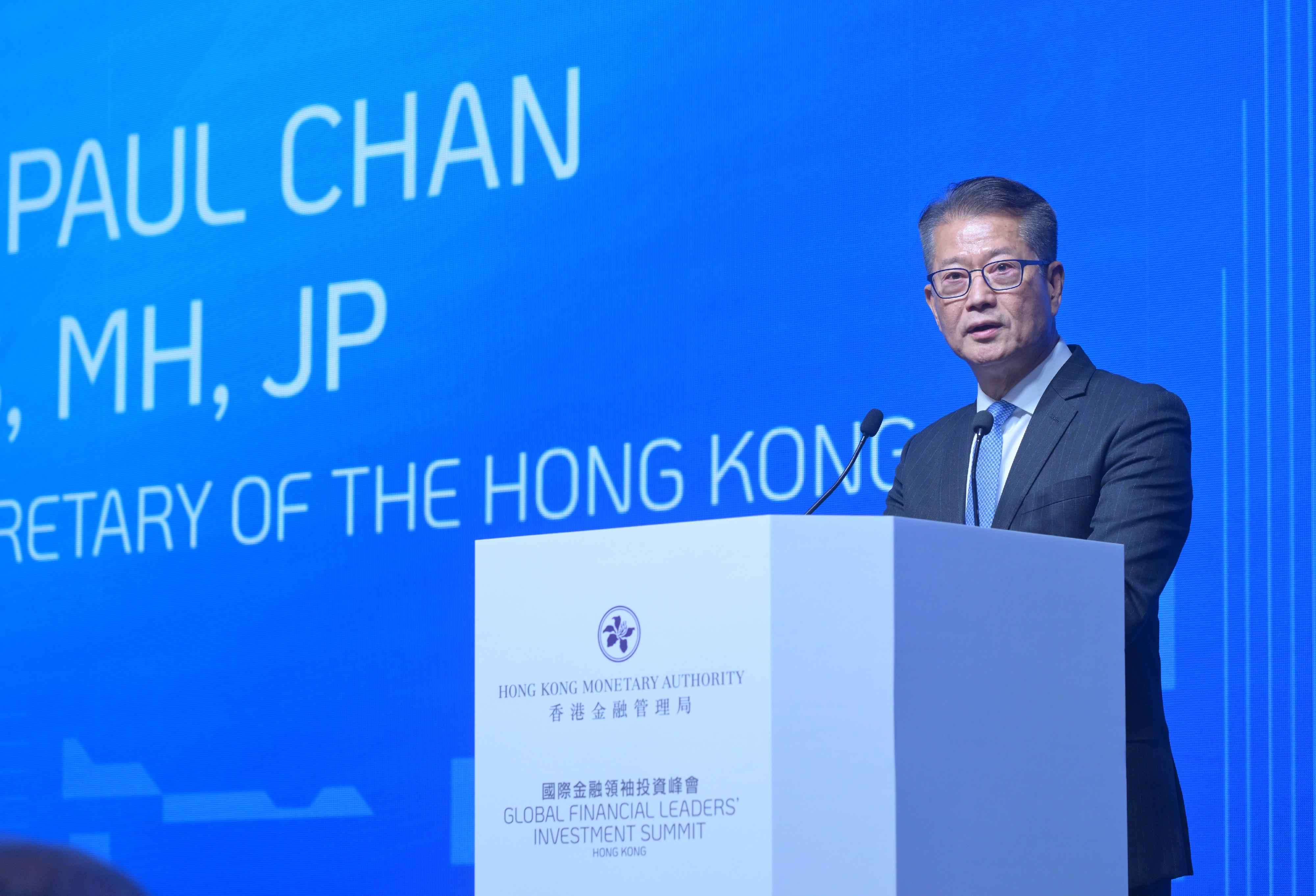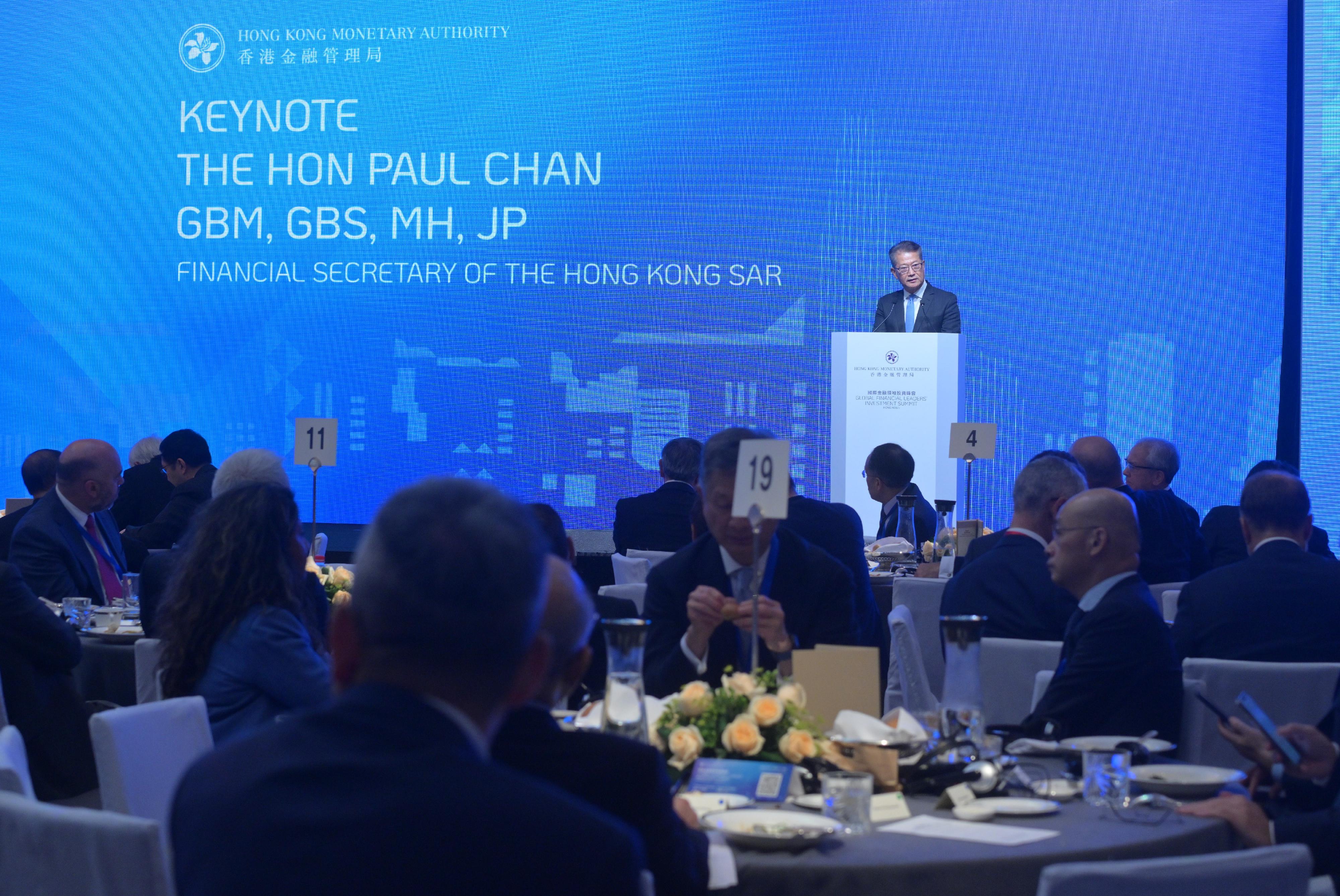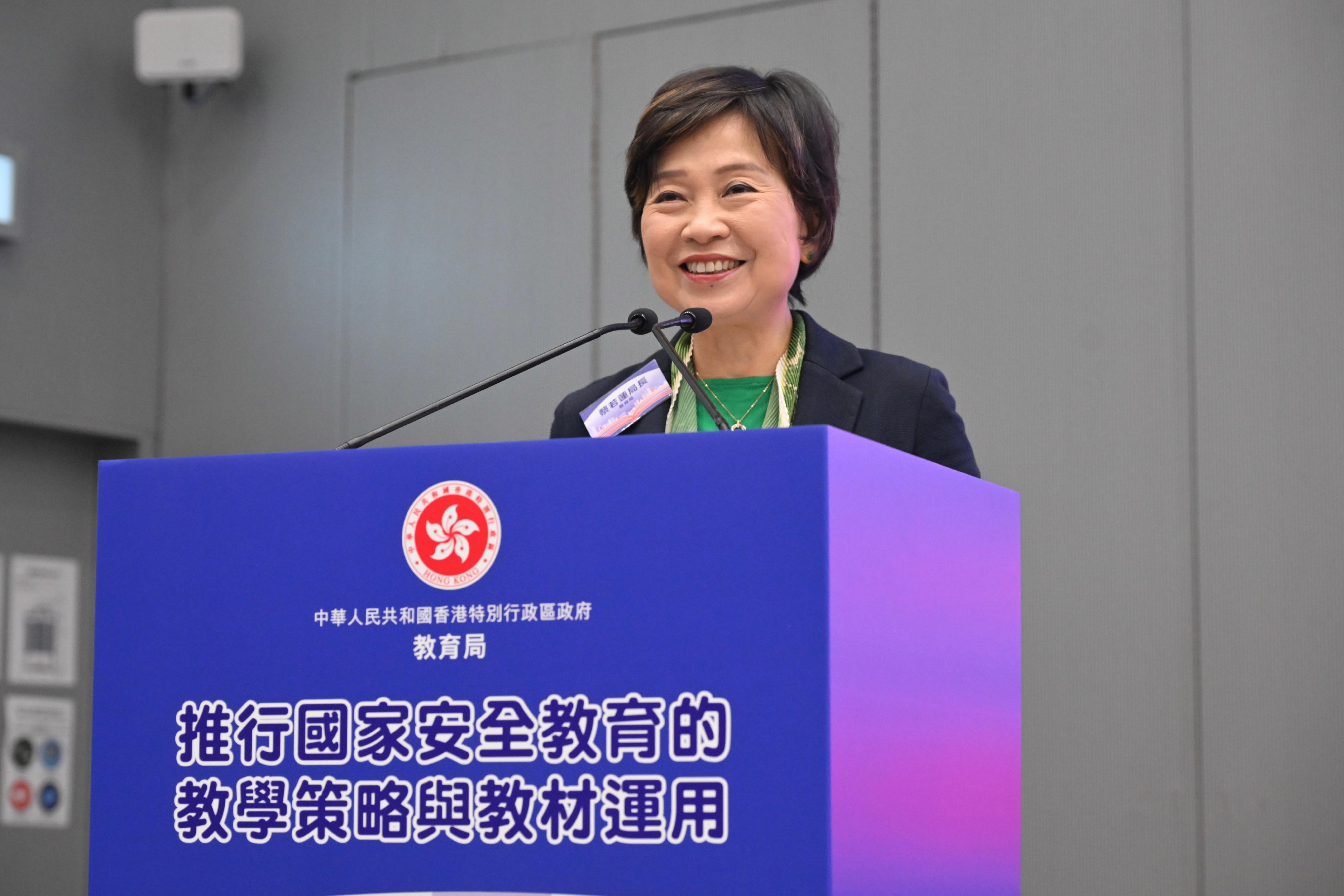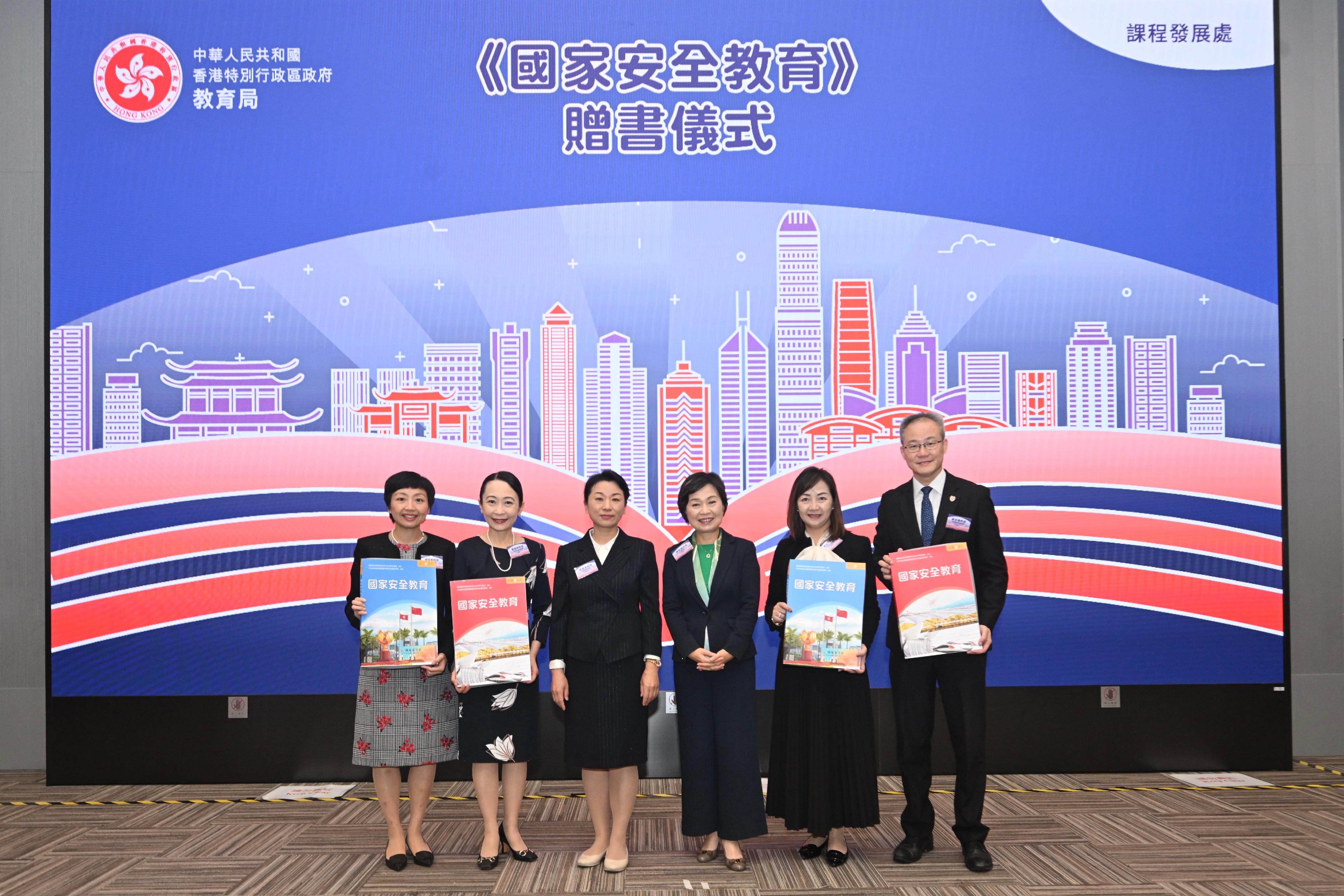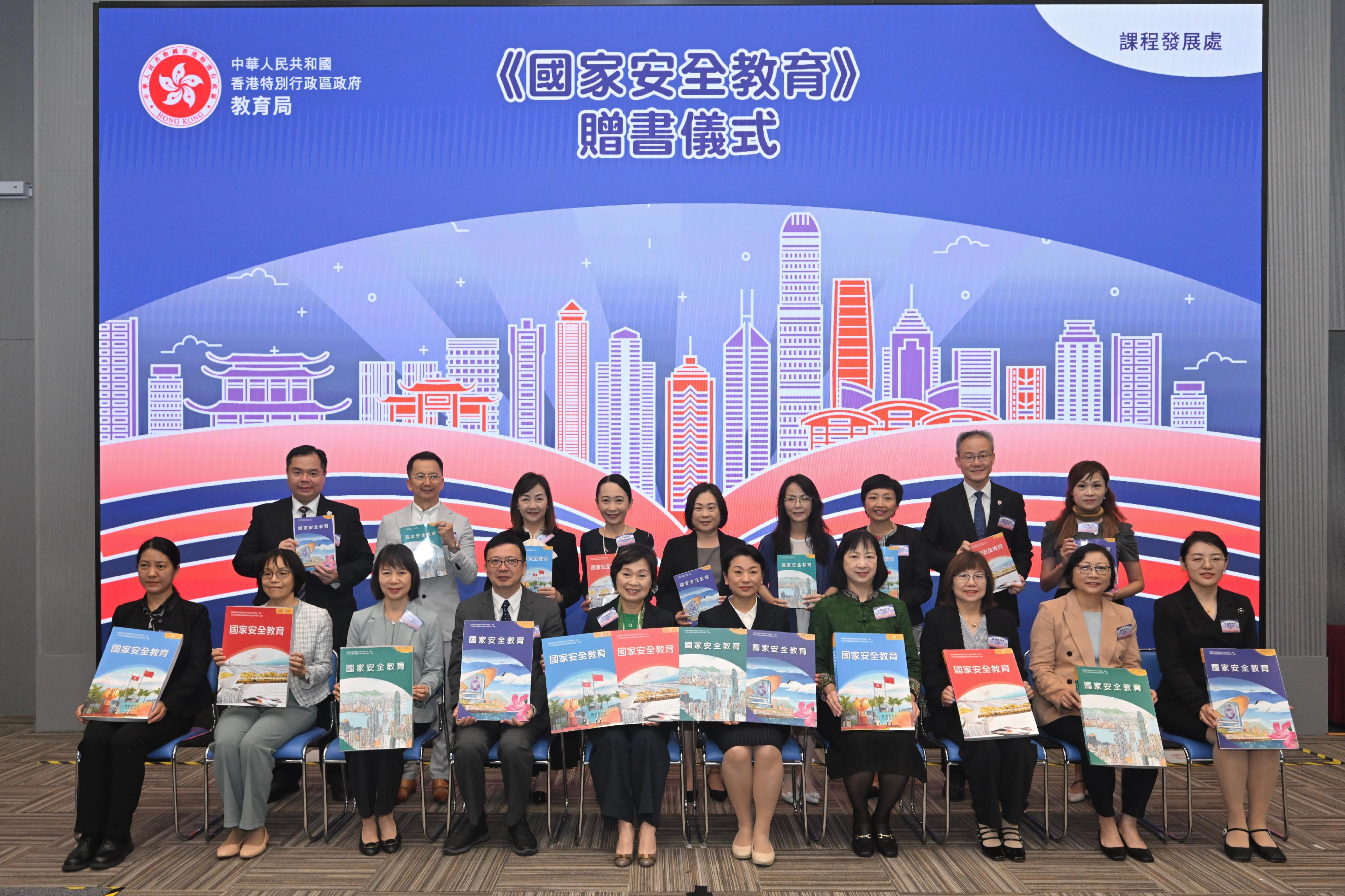Following is the speech by the Financial Secretary, Mr Paul Chan, at the Global Financial Leaders' Investment Summit Luncheon today (November 19):
Distinguished guests, ladies and gentlemen,
Good afternoon. And welcome to the Investment Summit luncheon. This morning's programme was replete with opportunity – from macro-investment trends, the future of artificial intelligence and digitalisation, to the vast promise of Asia and the rapidly growing private equity market.
Now, allow me to offer a delicate morsel of insights along with your well-deserved luncheon, with a focus on the economic future of Hong Kong.
You are, no doubt, well briefed on our current economic status, standing and prospects. But let me supplement that with why recent developments, and favourable government policies backed by the staunch support of the Central Authorities, are creating renewed opportunities, fresh promise.
It begins with trade, one of our traditional economic pillars.
International trade centre
Hong Kong has long served as an international shipping and trade centre as well as a re-export hub for China. We have been the prime destination for Mainland and overseas enterprises setting up international headquarters to manage offshore trading and supply chain businesses.
Today's global industry and supply chain is undergoing profound change, driven by a number of trends, including geo-economic fragmentation and the rise of on-shoring and friend-shoring.
Our country is also undergoing remarkable economic transformation. That's why many Mainland companies are establishing manufacturing and supply-chain networks worldwide.
China, however, remains a global industrial giant. It is, after all, the only country in the world to support industry in all its varying categories. It boasts a thriving technological system, with R&D (research and development) expenditure ranking second globally and a quality workforce recognised for its strong work ethic.
So in the foreseeable future, despite the talk of "China plus" strategies, China will continue to maintain a strong foothold in the global industry and supply chain.
For Hong Kong, these changes are bringing new opportunities. As Mainland enterprises go global, they require a wide range of professional services support, from trade financing, logistics, to consulting services on ESG (environmental, social and governance) compliance and other international regulations.
They also need a platform for managing their corporate treasury, logistics, marketing and more in support of their business development and expansion.
These and related areas play into Hong Kong's strengths.
Our professional services are top notch, business and people-to-people networks are comprehensive, and our standards align with international ones.
Our logistics capabilities are also unparalleled, with air connectivity that allows you to reach half the world's population in just five hours. Hong Kong International Airport operates over 1 000 flights a day, connecting 200 destinations, and has been named once again the world's busiest cargo airport for 2023 in terms of total volume. The Three-Runway System, which opens next week, will further reinforce our air superiority.
That's why we set a clear vision for Hong Kong's rise as a high value-added supply-chain management centre. This is not just for Chinese enterprises, but for all companies looking to expand their footprint in Asia.
Financial services
Financial services, another of our economic pillars, is also rife with fresh opportunities.
Of course, we hear misconceptions, from time to time, about our financial services sector, including reports about outflow of funds.
As a matter of fact, international investors continue to take confidence in Hong Kong. And the figures speak volumes about this. Bank deposits in the city, for example, have risen by more than 13 per cent, or US$250 billion, since the beginning of 2022 till September this year.
Our asset- and wealth-management business also continues to grow, with assets under management reaching US$4 trillion last year, 30 per cent higher than that in 2018. Investors outside Hong Kong and the Mainland have consistently accounted for more than half of our total assets under management.
So what do these tell us? Hong Kong, as an IFC (international financial centre), is as vibrant and bustling as ever. The efforts we have been making on all fronts are building a better environment for investments, for businesses to thrive.
In the financial world, Hong Kong's role as a "super connector" is also gaining momentum, linking not just with developed markets, but also emerging markets with diverse backgrounds and cultures. Here, we offer a full range of fundraising options, supported by top global financial institutions and talent. With the expanding Connect Schemes with the Mainland both in terms of breadth and depth across different assets classes, quality issuers from around the world could access both Mainland and international liquidity here.
Shifting global dynamics are creating challenges as well as opportunities. Many Mainland companies aspiring to go global will need to seek global funds to support the development of their overseas businesses. Hong Kong shines as an ideal platform, poised to support these goals and guide these companies on their journey into the global marketplace.
And our vision extends beyond Chinese companies. The Global South, including regions such as ASEAN (Association of Southeast Asian Nations) and the Gulf countries, is experiencing rapid growth, driven by young populations, expanding middle classes, and ambitious national development plans. Companies from these regions are looking to raise capital and expand. In the face of an evolving geopolitical landscape, they are keen to build stronger connections with Hong Kong, particularly with a view to tapping into the vast opportunities in this part of the world.
Innovation and technology
Beyond the two economic pillars, we have a bold vision to develop Hong Kong into an international innovation and technology hub along with sister cities in the Greater Bay Area. To turn this vision into a reality, we need to think big, and think strategically.
We're building on strong foundations. Hong Kong is blessed with world-class scientific research capabilities, a vibrant start-up network and growing technological collaborations in the Greater Bay Area.
We focus on four strategic areas: AI (artificial intelligence) and data analytics, biotech, fintech and new energy, and new materials.
Take biotech as an example. We are setting up a Greater Bay Area International Clinical Trial Institute in the Lok Ma Chau Loop area on the border with Shenzhen. It will begin operation before year’s end and will attract multinational biotech and pharmaceutical companies looking to access the Mainland market.
We are also establishing a primary evaluation system for medicine and medical devices, as part of the efforts to secure, in the long term, the recognition of medicine approved in Hong Kong for use in the Mainland.
Realising our innovation vision demands land. That's why we're developing the Northern Metropolis. This is where the 87-hectare Hong Kong-Shenzhen I&T Park will be located, home to many of the world's most strategic I&T (innovation and technology) enterprises, driving innovation, collaboration, and growth.
And we are seeking to provide for, with the Park, an unimpeded cross-boundary flow of talent, data, bio-samples, and investment. This will turn the Park into a truly unique ecosystem for innovation and technology.
But more than land, strategic companies and talent are the lifeblood of our I&T progress.
That's why we've launched a range of initiatives to attract the best and brightest from around the world. And the results are impressive. Some 100 I&T companies from around the globe have been attracted to Hong Kong, with investments totalling over US$6 billion and creating more than 17 000 jobs in the next couple of years.
But it's not just about companies – it's also about people. Our talent schemes have been met with an overwhelming response, with nearly 400 000 applications received to date. We've approved some 250 000 of them, and about 160 000 professionals have already arrived in Hong Kong.
Meanwhile, to add to the impetus of our I&T development, we have also set up the HKIC – the Hong Kong Investment Corporation.
As "patient capital", the HKIC has a dual mandate: seeking reasonable financial returns, while enhancing Hong Kong's competitiveness and economic vitality through strategic investment.
Through investing and co-investing in projects, it plays a key role of supporting Hong Kong's strategic industries and the development of different parts of the ecosystem in the industry chain, as well as channeling private capital into them.
The HKIC has already concluded a number of exciting projects, from using AI for drug discovery to exporting electric vehicle-charging systems to Thailand. It is helping to drive our innovation agenda forward, and we will be seeing the impact it will make in the years to come.
Concluding remarks
Ladies and gentlemen, I hope I have given you a glimpse into the exciting future that awaits Hong Kong. We are a city that has always thrived on change and challenges, and we are confident that – though the sailing can be fraught with uncertainty, we will as always weather the challenges that lie ahead and emerge stronger and more vibrant.
Under the "one country, two systems" principle, Hong Kong will always remain open and welcoming, harness its singular strength in internationalisation, and be committed to working together with you all to build a brighter future.
I know you will enjoy today's luncheon and the accompanying fireside chat. Thank you and bon appétit.
